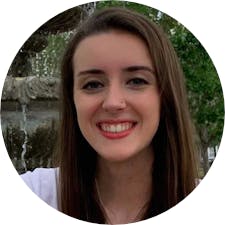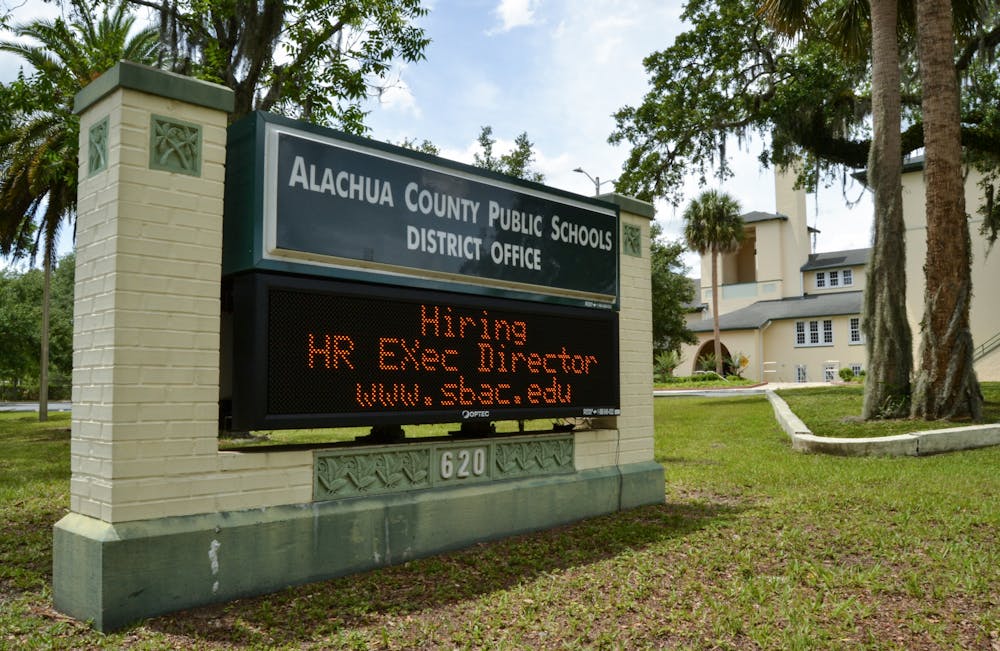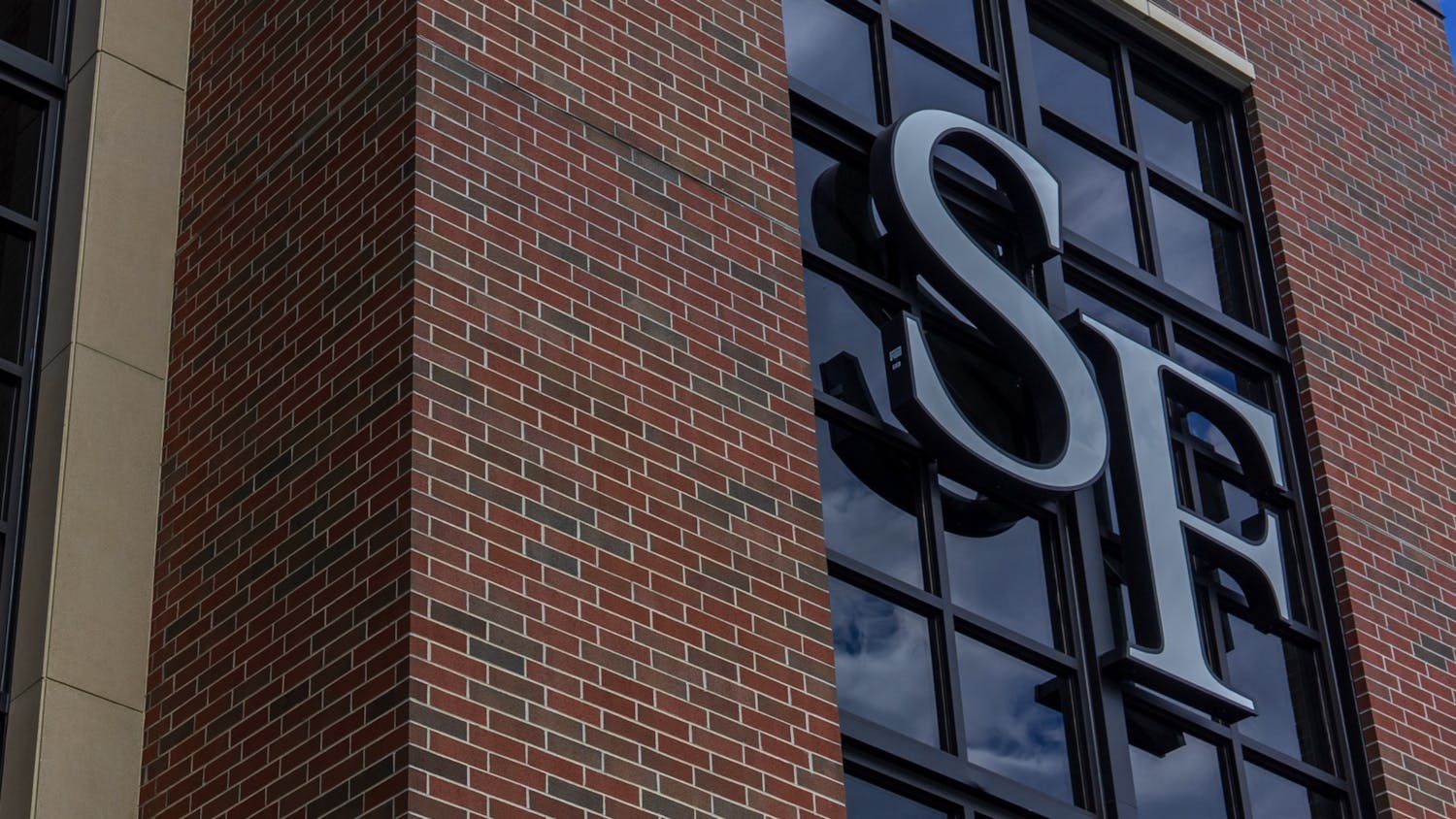After more than nine and half months, Alachua County Public Schools students and teachers will complete an entire school year amid the COVID-19 pandemic Wednesday.
On Aug. 31, about 12,500, or 46%, of ACPS students returned to school for in-person instruction while the Alachua Digital Academy had about 42% of all students. Digital Academy students followed the typical school day by attending classes on Zoom, and all the resources and opportunities available to in-person students were also available to Digital Academy students, including clubs, sports, meals, and mental health and specialized services.
About 12% of students were enrolled for Alachua eSchool, which has been an option for students for the past eight years.
Instead of hectic hallways and chaotic cafeterias, students and teachers in brick-and-mortar classrooms were advised to maintain social distancing, wear masks and receive routine temperature checks. More than half of all ACPS students attended classes and completed homework all from home, which posed challenges such as Zoom ‘bombings’ and connectivity issues for students, teachers and parents alike.
Aarti Kalamangalam spent her entire senior year in the confines of her home. The 17-year-old Eastside High School 2021 graduate said she followed a normal school day schedule by attending live Zoom lectures, taking a break for lunch and completing homework assignments after her classes ended.
Kalamangalam said she didn’t mind the change as many of her classmates and friends also stayed home, and they would connect over Zoom private messages and after-school walks outside. Her mom works from home, and the pair grew closer through evening walks and eating lunch together every day.
“Because we were interacting so much, and I was literally doing school from home, I felt like I could give her much more detailed updates on what was going on at school and in my life,” she said. “She kind of felt like a friend in that way, almost like she was doing school with me.”
Kalamangalam said she appreciated how often her teachers would extend grace and understanding to her and her classmates, but she felt district leaders held unfair expectations and did not provide enough resources.
“They forced all the teachers to come back and teach in-person school at the start of this year,” she said. “They didn’t even give them a choice, which I think is so immoral because they’re people too, and they have families and they have at-risk relatives, maybe even they themselves are at risk.”
These obstacles only increased Kalamangalam’s admiration for her teachers as she witnessed them persevere through the unprecedented circumstances.
“It's really hard to feel like school matters,” she said. “But my teachers for sure never wavered in that they wanted us to succeed, and they wanted us to do well, even if it meant that they were being pushed to the brink.”
Jackie Collins, a chorus and theatre teacher at Lincoln and Howard Bishop Middle School, said she likely worked more than 100 additional hours throughout the school year. She spent her after-school and weekend hours grading videos of Digital Academy students singing and creating virtual choir videos.
“I was working two jobs,” the 34-year-old said.
Collins was determined to preserve performances for her students because she said they allowed the kids to express their talents.
“It was a lot of extra hours, and I wasn’t asked to do it, I did it because it meant a lot to the kids and their families and my school and me,” she said. “The whole point is to give them confidence to continue doing this and continue singing in middle school.”
Parents also observed teachers learn to grapple with the unparalleled school year.
Desire Santana said she chose to place her daughter, Sanaiia, into Digital Academy for her fifth-grade year at Glen Springs Elementary, thinking the program would be temporary.
“It was a lot to juggle for teachers who weren't used to the technology,” she said. “Once they kind of got their groove and their footing, we had our norm and there was some normality in it.”
Santana said she attempted to keep her family’s lifestyle relatively the same. Sanaiia still woke up at 6 a.m., and she still had to complete her school work before being allowed to watch TV or use technology.
“This year was inspiring because I'd say that it encouraged perseverance and change,” she said. “Everyone, teachers, students, faculty, was hit with this unknown, and everyone had to adapt, and I think that we persevered the best way we could.”
Contact Abigail Hasebroock and Maya Erwin at ahasebroock@alligator.org and merwin@alligator.org. Follow them on Twitter @abbeyhasebroock and @mayaerwin3.

Abigail is a second-year journalism major covering university general assignment news for The Alligator. When she’s not catching up on school or reporting, she’s spending time outside, reading or reorganizing her Spotify playlists - usually all at the same time.
Maya is a third-year journalism major at the University of Florida covering university general assignment news for The Alligator. In her free time, Maya loves traveling, spending time with friends and listening to music.






